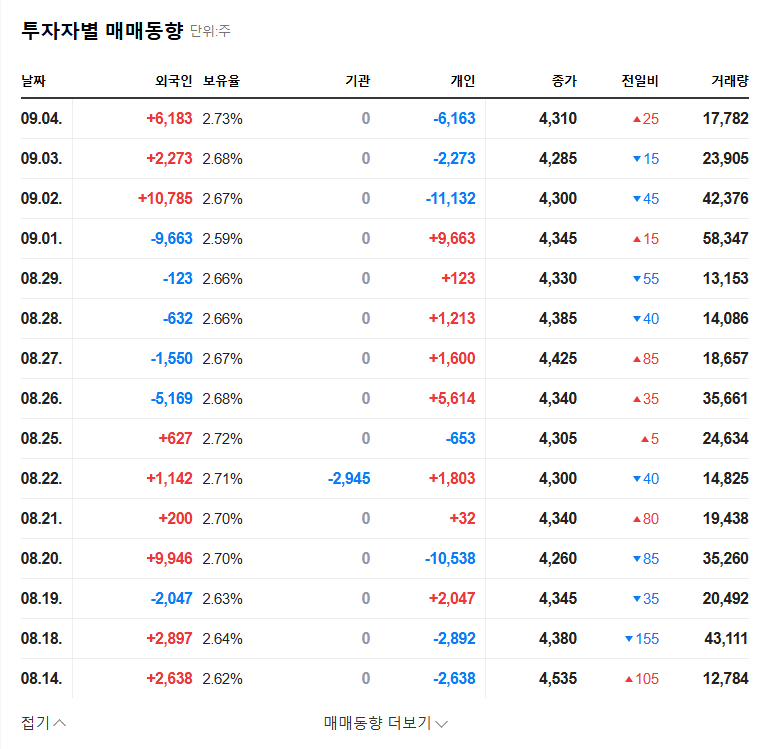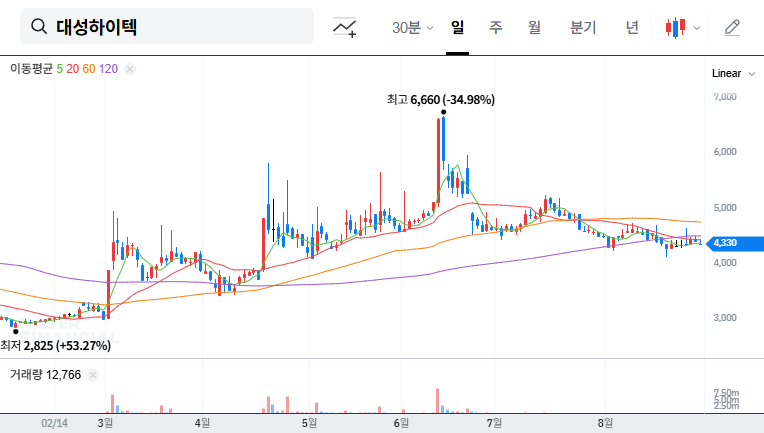
1. What Happened?
Pulp Project No. 1 Private Equity Fund acquired 372,776 common shares and call options on convertible bonds of Dae Sung High-Tech, securing a 5.95% stake. This move could signify more than just a passive investment and has drawn considerable market attention to the company’s future trajectory.
2. Why the Investment?
Dae Sung High-Tech boasts a solid order backlog and is pursuing new business ventures in high-growth sectors like electric vehicles, defense, and medical devices. The growth potential of the defense sector, particularly with production slated to begin in the second half of 2025, likely served as a key investment driver.
3. What Does This Mean for the Stock Price?
- Positive Impacts: Increased investor interest, potential stock price momentum, expectations of management improvements, and strengthened growth drivers for new businesses.
- Potential Risks: Short-term profit-taking, dilution effects from CB conversion, and potential clashes in management strategy.
While short-term stock price momentum is anticipated, challenges like high debt-to-equity ratio and declining profitability must also be considered.
4. What Should Investors Do?
While private equity investment can be a positive catalyst, blind faith is not advisable. Investors should carefully evaluate the company’s fundamentals, the private equity fund’s investment strategy, and future earnings prospects before making any investment decisions. Closely monitor the Q3 earnings announcement, performance in the defense sector, and disclosures related to convertible bonds.
Frequently Asked Questions
What is Pulp Project No. 1 Private Equity Fund?
This report does not provide detailed information about the private equity fund. Further research is recommended.
What are Dae Sung High-Tech’s main businesses?
Dae Sung High-Tech’s core businesses include precision parts, Swiss-turn automatic lathes, and compact machining centers. They are also expanding into new sectors such as electric vehicles, defense, and medical devices.
What are the key investment considerations?
Investors should consider potential risks such as short-term price volatility, dilution from CB conversion, and potential management conflicts. Thorough analysis of the company’s fundamentals and future business outlook is crucial.




